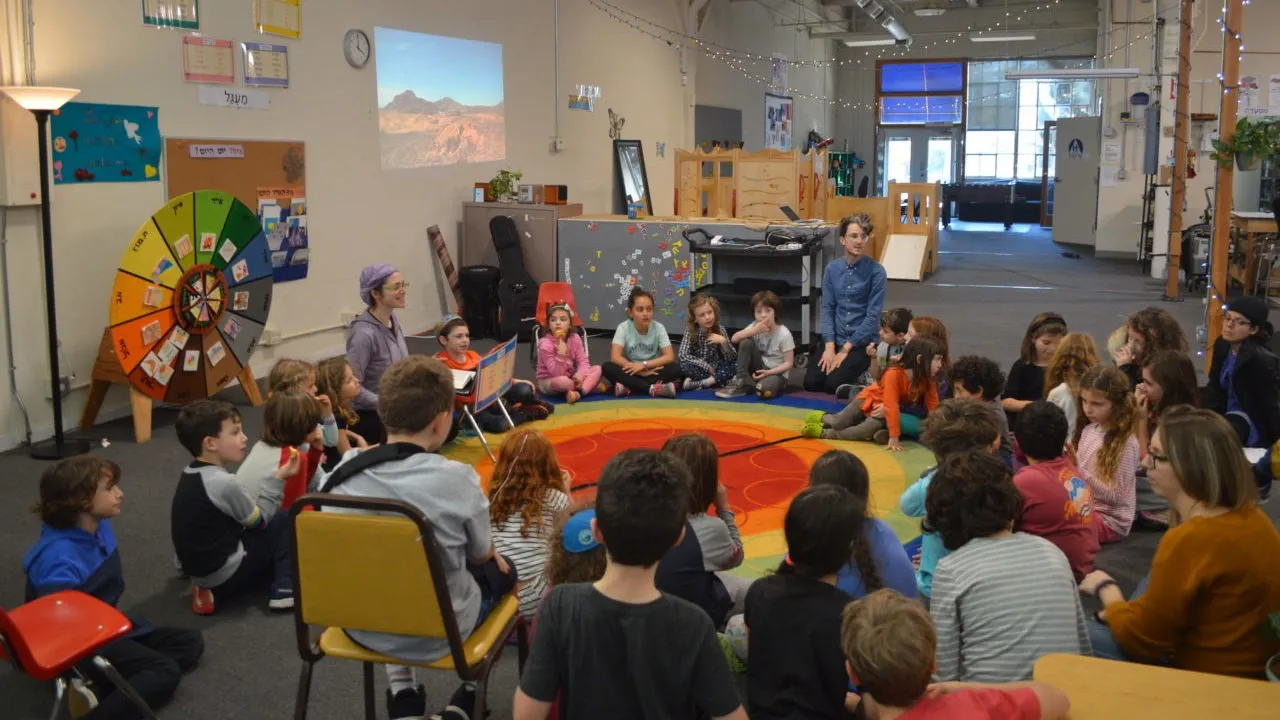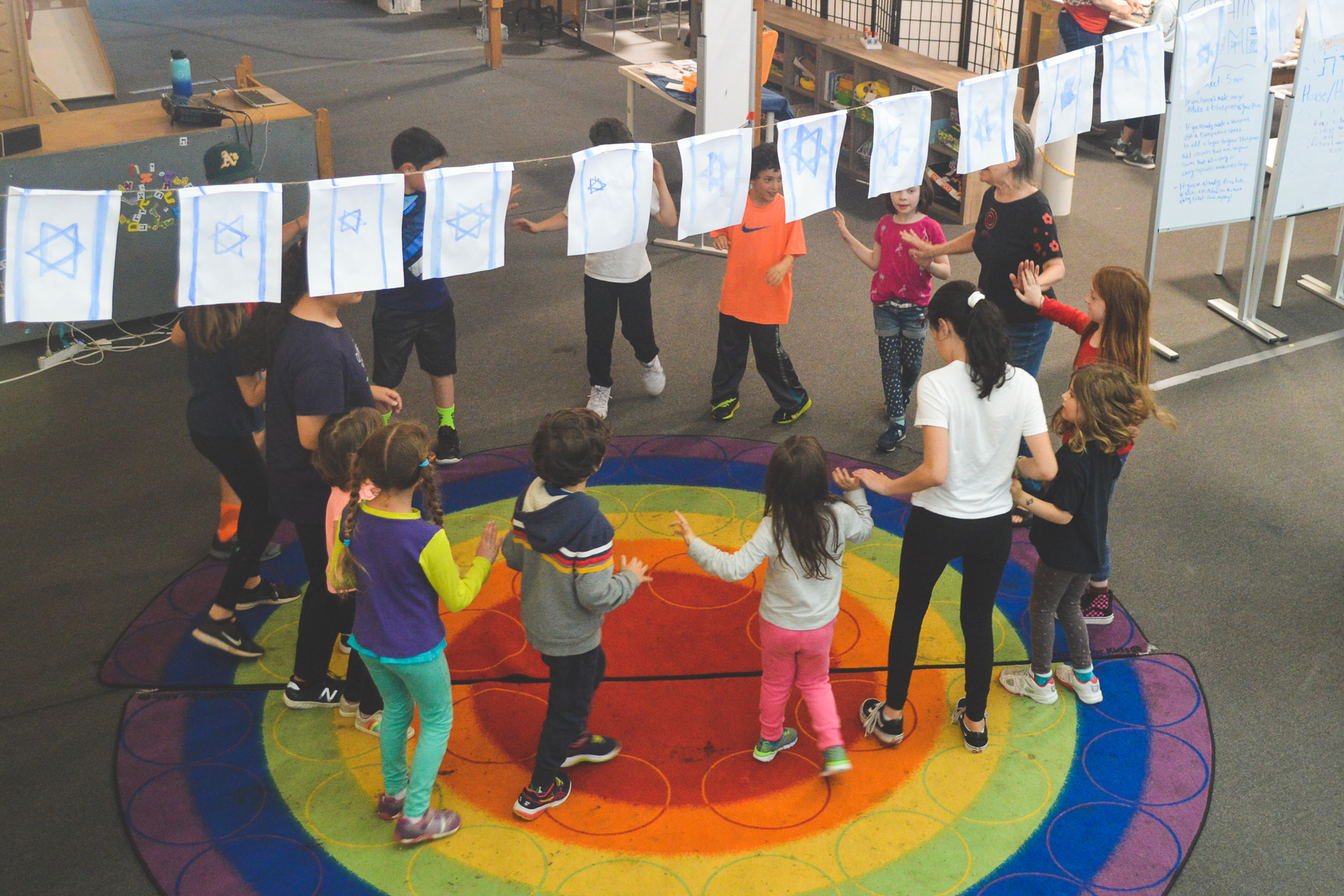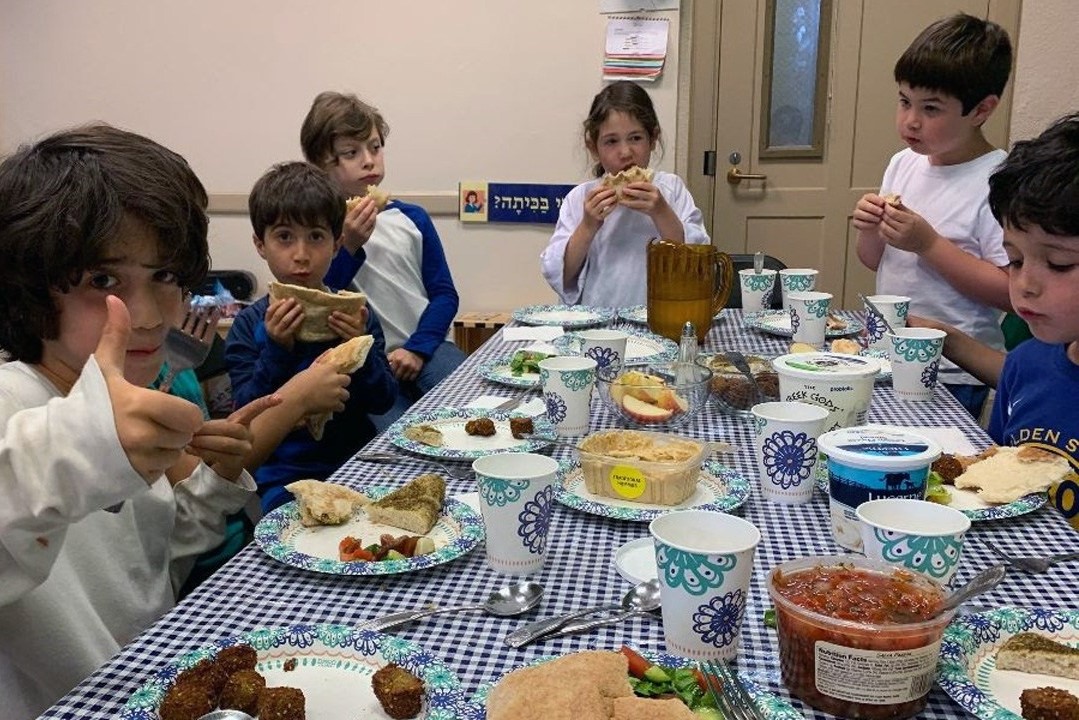Oren Massey walks through a warm classroom decorated with children’s artwork and Hebrew characters, greeting young students and teachers alike with a gentle “Shalom” as Hebrew music plays in the background.
On one side of the room, kindergarteners sitting at a table covered with red-and-white checkered tablecloths dig into a hearty communal snack of pita, falafel, hummus, fruit and vegetables. On the other side, two young girls sit with a teacher dealing out cards for an Israeli game similar to Uno.
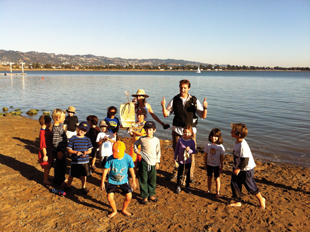
Oren Massey with Edah students on an outing to the Berkeley Marina photo/edah
“Achat, shtaim, shalosh, arba, chamesh, shesh, sheva,” counts the teacher, as he deals from the colorful deck.
It’s almost 3 p.m., and the kids are absorbed in what for them is a daily routine: Every day after school, buses bring them from nearby public schools to Congregation Beth El in Berkeley for an experiential Hebrew after-school program called Edah.
Edah currently enrolls 43 youngsters (K-5) in a program that mixes language immersion with Jewish traditions. It’s small and it’s independent, but it’s also a program that leaders in the world of Jewish education think has the potential to inspire Jewish educators across the country.
To that end, the Covenant Foundation, which works to strengthen Jewish education, recently awarded Massey, Edah’s executive director, a Pomegranate Prize for 2014. He was one of five people to receive the award on Nov. 9.
“We think Oren is the embodiment of what the future of Jewish education can look like,” said Harlene Winnick Appleman, executive director of the Covenant Foundation. “He’s a risk taker.”
Massey, 40, first got involved with Edah, now in its fifth year, when he was working as the director of the Center for Jewish Living and Learning, the now-defunct educational department of the Jewish Federation of the East Bay. Under Massey’s leadership, the CJLL began providing Edah with support in its second year (when Edah also received the Covenant Foundation’s $50,000 signature grant). A year later, Massey joined the Edah team full-time.
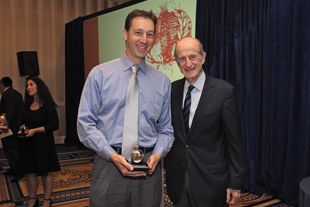
Oren Massey (left) and Covenant Foundation chairman Eli Evans photo/the covenant foundation
“Oren came onto Edah at a moment where we really needed leadership, somebody who could take our crazy idea and actually made it happen,” said Elana Naftalin-Kelman, a founder and board member whose oldest child, now 9, was one of Edah’s starting group of five kindergarteners. “He has boundless energy for it because he believes in it so much.”
Edah, which means community, is neither a synagogue-affiliated religious school nor a Jewish day school experience. Instead, it addresses a pressing need for working families — after-school care — while offering Jewish education.
“There are after-school providers out there; you can get them at your public school for much cheaper,” Massey said. Annual tuition for attending Edah five days a week ranges from $5,000 to $8,500 depending on the student’s arrival time. “Our parents are looking not only for [after-school care], but they are looking for rich environments for their children to learn in.”
Though Massey has years of professional experience in Jewish education, he dates his history as an educator back to his teen years in Israel, where his family moved from Cleveland when he was 12. He tutored younger students at his synagogue who were studying for their bar and bat mitzvahs and later served as a tour guide to American kids who were visiting Israel. Eventually, he earned a master’s in nonprofit management from Case Western University and a master’s in Jewish education from the university’s Siegal College of Judaic Studies.
Edah flips traditional Hebrew school instruction on its head by first focusing on comprehension and conversational Hebrew through games, play and communal experiences before tackling reading in the older grades. Teachers speak to students in both English and Hebrew, but try to keep 50 to 80 percent of the program in Hebrew. Students attend between three and five afternoons a week.
The Covenant Found-ation thinks the program is such a good idea that it gave Edah funding to develop the Nitzan Network, a loose group of after-school Jewish/Hebrew learning programs in eight U.S. cities and Toronto. It launched in 2011.
As a Pomegranate Prize winner, Massey will get $15,000 to spend on professional development. He’ll also attend an annual confab with other prizewinners for the next three years to network and share ideas.
“I believe we’re creating a thoughtful, knowledgeable global citizen,” Massey said. “I’m just doing it through the lens of Hebrew.”
Originally published on November 21, 2014 by Drew Himmelstein via The Jewish News of California (J-Weekly)

